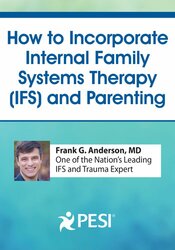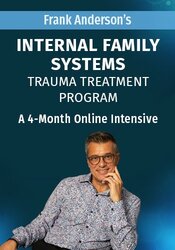What Internal Family Systems (IFS) Therapy Brings to Parenting

Parenting is often described as one of life’s most fulfilling roles—but also one of its most challenging. The sheer complexity of raising children, coupled with the pressures of managing one’s own emotional triggers, creates a dynamic that can be deeply rewarding and profoundly difficult. Enter Internal Family Systems (IFS) therapy, a groundbreaking approach that equips parents to navigate these challenges with greater awareness, compassion, and self-understanding. IFS therapy can transform the parenting journey by helping parents heal, connect, and foster growth—both in themselves and their children.
Through IFS therapy, parents can identify these reactive parts, uncover the wounds they protect, and work toward healing. This process not only frees the parent from cycles of reactivity but also prevents them from passing on these unhealed patterns to their children.
By embracing these triggers as invitations for healing, parents can shift from reacting to their children’s behavior to responding with greater empathy and understanding. In doing so, they model emotional regulation and resilience for their children.
From the IFS therapy viewpoint, parenting isn’t about striving for perfection—it’s about being fully present. It’s about showing up for both our children and ourselves with openness, compassion, and a readiness to evolve. By embracing this mindset, parents can not only deepen their connection with their children but also nurture a more meaningful relationship with themselves.
The Core Tenets of IFS Therapy in Parenting
At its heart, IFS therapy operates on two foundational beliefs:- Everyone Has Parts: These “parts” can be understood as distinct aspects of our personality that emerge in response to life’s experiences. In parenting, these parts can show up as the “protective” part that gets frustrated when a child misbehaves or the “wounded” part triggered by unresolved childhood trauma.
- Self-Energy Is Key: Beneath all parts lies the “Self”—a calm, compassionate, and centered essence within every individual. When parents operate from Self-energy, they are better equipped to respond to their children with empathy and clarity rather than reactivity.
Healing the Parent to Help the Child
One of the most transformative aspects of IFS therapy in parenting is its focus on healing the parent’s wounds. Many of the emotional triggers parents experience—such as anger, fear, or frustration—are rooted in their own unresolved childhood experiences. For example, a parent who was criticized harshly as a child may overreact when their child displays defiance or makes a mistake.Through IFS therapy, parents can identify these reactive parts, uncover the wounds they protect, and work toward healing. This process not only frees the parent from cycles of reactivity but also prevents them from passing on these unhealed patterns to their children.
Parenting as a Journey of Self-Discovery
IFS reframes parenting as a two-way relationship of growth and learning. Children have a unique ability to trigger their parents’ unresolved parts, offering opportunities for deep self-reflection. For example, a parent’s frustration over a child’s tantrum might reveal their own struggles with self-control or unmet emotional needs.By embracing these triggers as invitations for healing, parents can shift from reacting to their children’s behavior to responding with greater empathy and understanding. In doing so, they model emotional regulation and resilience for their children.
The Gift of Growth
One of the most transformative perspectives Internal Family Systems (IFS) therapy offers to parenting is the idea that every challenge is a chance to grow. As parents work on healing their own inner wounds, they foster an environment where their children can thrive naturally. At the same time, when children test boundaries or question beliefs, they present parents with priceless opportunities to learn patience, resilience, and unconditional love.From the IFS therapy viewpoint, parenting isn’t about striving for perfection—it’s about being fully present. It’s about showing up for both our children and ourselves with openness, compassion, and a readiness to evolve. By embracing this mindset, parents can not only deepen their connection with their children but also nurture a more meaningful relationship with themselves.
Digital Seminar:
How to Incorporate Internal Family Systems Therapy (IFS) and Parenting
How to Incorporate Internal Family Systems Therapy (IFS) and Parenting

Get to the real root of parenting challenges. Even when parents are at the top of their game, the most routine curveballs—quarreling siblings, a child’s public meltdown, or a phone call from a teacher—can trigger unresolved shame, guilt, anger or disconnection in parents. By applying the Internal Family Systems (IFS) approach, clinicians can help parents more fully understand and heal their own wounds that their children inevitably evoke and so much more.
Frank Anderson’s Internal Family Systems Trauma Treatment Program: A 4-Month Online Intensive

International trauma expert and IFS-senior lead trainer, Frank Anderson presents a step-by-step guide to trauma healing using the transformative IFS therapy model. Through in-depth experiential training sessions, real in-session videos, and ample skill demonstrations, you'll develop the skills and confidence you need to help your clients overcome even the most complex traumas. PLUS, you’ll have exclusive access to 5 Live Consultation Calls with Frank where you will have even more learning opportunities including more demos, live practice, and Q+A. You will end this intensive online course prepared to integrate the Internal Family Systems trauma model with your current clinical models — so you can help your clients find hope, growth, resilience, and recovery.
Meet the Expert:
Frank Anderson, MD, completed his residency and was a clinical instructor in psychiatry at Harvard Medical School. He is both a psychiatrist and psychotherapist. He specializes in the treatment of trauma and dissociation and is passionate about teaching brain-based psychotherapy and integrating current neuroscience knowledge with the IFS model of therapy.
Learn more about his educational products, including upcoming live seminars, by clicking here.
Learn more about his educational products, including upcoming live seminars, by clicking here.





